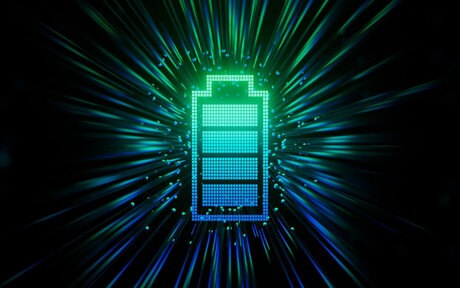Driving new safety standards for EV batteries

Inside a $15 million contaminated soil washing facility
September 25, 2024
Report highlights need for education on clean energy transition
September 25, 2024Recent news reports highlighting the rise in lithium-ion battery fires have sparked significant concern in Australia.
With the waste and recycling industry reporting that it is fighting up to 12,000 fires a year caused by discarded lithium-ion batteries, and in the wake of several headline-grabbing electric vehicle (EV) fires around the world, urgent new safety standards are clearly needed.
Alpha HPA is making inroads into improving battery safety for EVs with its proprietary technology that is designed to reduce fire risk.
Alpha HPA’s Managing Director Rimas Kairaitis said advancements in EV technology were driving the world towards a lower-carbon future, aligning with Alpha’s commitment to supporting sustainable and secure energy.
“At its core, the lithium-ion battery operates on controlled oxidation reactions; however, under certain conditions, such as physical damage or the use of lower-quality materials, these reactions can escalate rapidly and uncontrollably, leading to thermal runaway, or battery fires,” Kairaitis said.
To address these risks, Alpha HPA has developed a solution that builds upon a process originally pioneered by battery anode manufacturer BTR New Materials in the 2010s.
This process, called the Ultra Coat, has demonstrated a 100% reduction in thermal runaway events, which can help improve the safety of lithium-ion batteries.
Alpha HPA has filed a provisional patent for a process which uses its proprietary ultra-high-purity aluminium nitrate precursor to apply a controlled thickness of high-purity aluminium-oxide and hydroxide coatings to various surfaces within the Li-ion battery cell environment.
The Ultra Coat technology is also versatile, with potential applications extending to other e-mobility products, household batteries and grid energy storage.
“As the world intensifies efforts to combat climate change and reduce energy consumption, the need for reliable and safe energy storage solutions has never been greater.
“Alpha HPA’s groundbreaking Ultra Coat Process not only addresses a critical safety concern but also aligns with global sustainability goals, ensuring the continued development of clean energy technologies,’’ Kairaitis said.
Alpha HPA’s technology is claimed to result in up to 70% lower total carbon emissions in comparison to traditional, emissions-intensive methods of HPA production. The company said it achieves this by using a common industrial chemical feedstock, by recycling 100% of key reagents as by-products, and by using 100% renewable energy to power its operations.





